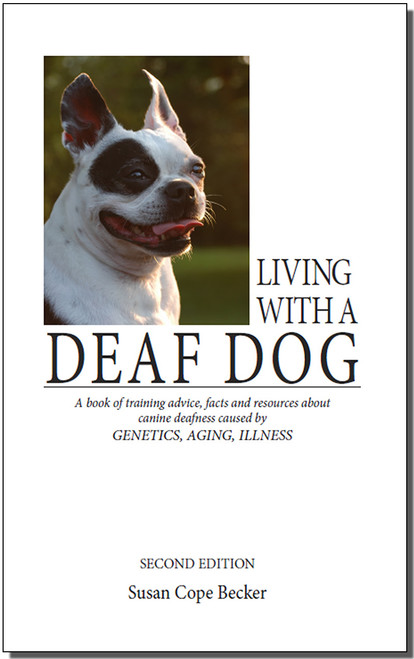What is a shopworn or damaged title?
We often have books that have slight damage to either the cover or the interior of the books that don't allow us to sell them as brand new. If you don't need a brand new looking book, these are a great option.
(Shopworn)
Sharing Life With A Deaf Dog Is Not Only Possible But Rewarding…especially with the book that has become known as “the deaf dog Bible.”
For more than 20 years Living with a Deaf Dog has helped tens of thousands of owners all over the world communicate with and train their deaf dogs. This book has been an integral part of the world wide movement to increase awareness, understanding and acceptance of deaf dogs which has resulted in increased adoptions, decreased euthanasia rates, and even acceptance into dog sports and competitions.
Additions To This Valuable Resource:
•Deafness due to aging, illness, and tips for living with deaf and blind dogs
•Body Language illustrations of both canine and human
•American Sign Language Chart and additional hand signs
•Updated and modern training methods
•Stories and photos from deaf dog owners
Praise for Living With A Deaf Dog
I call it the Deaf Dog Bible. I have recommended it to deaf dog groups in America, Canada and the world for at least 15 years.
Liz Grewal, Deaf Dog Owner
As shelters begin to allow animals with deafness and other disabilities to go up for adoption, this book has proven to be an invaluable tool when raining and communicating with deaf dogs.
Tracie Pfielfle, Central Nebraska Humane Society
Good Communication methods and training methods are presented so that the new owner can successfully get past the frustrations and move into an owner-pet relationship that is rewarding and mutually beneficial.
George M. Strain, Ph.D., Comparative Biomedical Sciences School of Veterinary Medicine, Louisiana State University









